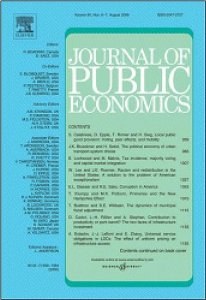
Fazzio, I., Eble, A., Lumsdaine, \RobinL.\, Boone, P., Bouy, B., Hsieh, \.T.J., Jayanty, C., Johnson, S. and Silva, \.F. (2021). Large learning gains in pockets of extreme poverty: Experimental evidence from Guinea Bissau Journal of Public Economics, 199:.
-
Affiliated author
-
Publication year2021
-
JournalJournal of Public Economics
Children in many extremely poor, remote regions are growing up illiterate and innumerate despite high reported school enrollment ratios. Possible explanations for such poor outcomes include demand – for example, low perceived returns to education compared to opportunity cost; and supply – poor state provision and inability of parents to coordinate and finance better schooling. We conducted a cluster-randomized trial in rural Guinea Bissau to understand the effectiveness and cost of concerted supply-based interventions in such contexts. Our intervention created simple schools offering four years of education to primary-school aged children in lieu of the government. At endline, children receiving the intervention scored 58.1 percentage points better than controls on early grade reading and math tests, demonstrating that the intervention taught children to read and perform basic arithmetic, from a counterfactual condition of very high illiteracy. Our results provide evidence that particularly needy areas may require more concerted, dramatic interventions in education than those usually considered, but that such interventions hold great potential for increasing education levels among the world's poorest people.